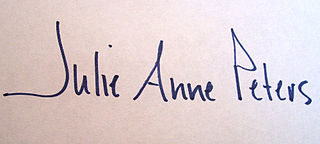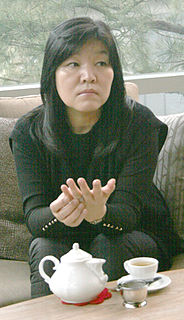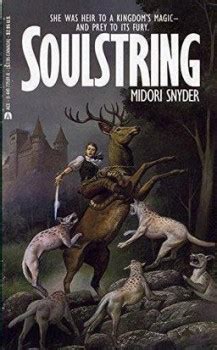A Quote by Julie Anne Peters
Cut the ending. Revise the script. The man of her dreams is a girl.
Related Quotes
...I have so many dreams of my own, and I remember things from my childhood, from when I was a girl and a young woman, and I haven't forgotten a thing. So why did we think of Mom as a mom from the very beginning? She didn't have the opportunity to pursue her dreams, and all by herself, faced everything the era dealt her, poverty and sadness, and she couldn't do anything about her very bad lot in life other than suffer through it and get beyond it and live her life to the very best of her ability, giving her body and her heart to it completely. Why did I never give a thought to Mom's dreams?
The girl was lighter without her heart. She danced barefoot on the hot roads, and her feet were not cut by the glass or stones that studded her way. She spoke to the dead whenever they visited her. She tried to be kind, but they realised that they no longer had anything in common with her, and she realised it, too. So they went their separate ways.
When you edit, you imagine your enemy is seated on the other side of the table. Your enemy! And your enemy is going to read that with a viciousness, because he knows where you didn't work on it. He's going to shake it and really aim for that jugular. So you are going to polish, and revise, and rewrite, and cut out, and shape it, so that your enemy has no place to grip it. That's how you revise.
The priestess of Artemis took hold of her almost with the violence of a lover, and whisked her away into a languid ecstasy of reverie. She communicated her own enthusiasm to the girl, and kept her mind occupied with dreams, faery-fervid, of uncharted seas of glory on which her galleon might sail, undiscovered countries of spice and sweetness, Eldorado and Utopia and the City of God.
I told my friend - we were working on a movie together - and he gave me a script and asked me to give him notes. And they were all male characters, and I said, "You know what would make this character more interesting?" And he asked what - and it's this road trip between three guys, basically, one older man, one 30-year-old and a 13-year-old mechanic. And I said, "If you make the 13-year-old a girl, and you make her an Indian-American mechanic." And he said, "What do you mean?" And I said, "Yeah, don't change anything in the script about him, and just make it a her."
The tale of the Monkey Girl gave me wat I needed most at a critical time in my life: the image of the creative and complex woman, unique to herself but willing to share those considerable gifts with a man capable of intuiting the wealth of her worth hidden beneath the skin. But more than that, the Monkey Girl also suggested that I need not be afraid of the fragile happily-ever-after, that I had resources of my own, and that I would not have to contort myself into a restrictive social role for fear of losing that fairytale ending.
But her name was Esmé. She was a girl with long, long, red, red hair. Her mother braided it. The flower shop boy stood behind her and held it in his hand. Her mother cut it off and hung it from a chandelier. She was Queen. Mazishta. Her hair was black and her handmaidens dressed it with pearls and silver pins. Her flesh was golden like the desert. Her flesh was pale like cream. Her eyes were blue. Brown.



































